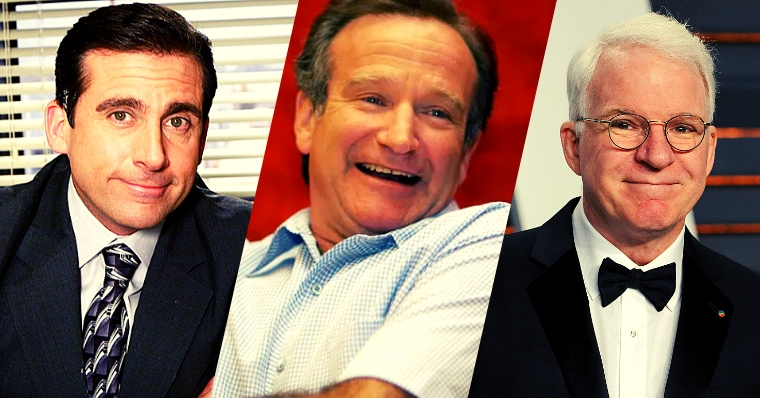Have you ever noticed how some actors just seem glued to specific genres? Comedy's got a whole roster of such personalities! These are actors you'd typically expect to see slipping on a banana peel, not scheming world domination. But life and some of our favorite comedic talents love a curveball. They've stretched their wings and taken us from laughter to gasps by playing some pretty intense and even downright spine-tingling antagonists. While this genre switch can be a hit or miss, it certainly doesn't deter a whole lot of our funny favorites from taking a swing at it. Without further ado, let's dive (metaphorically, of course!) into this compilation. Here are 10 comedic maestros who have dabbled in the dark side by portraying villains!
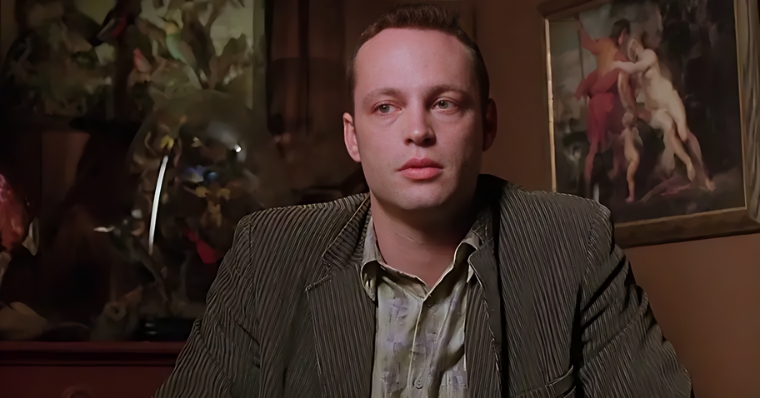
Vince Vaughn
Vince Vaughn may not be a household name you recognize instantly, but his comedic roles are pretty much pop culture staples. You'll probably remember his performances in films like "Wedding Crashers," "The Break-Up," "Couples Retreat," and more recently, "Freaky" and "Queenpins." A man whose talents seem custom-tailored for comedies that tickle your funny bone and steal box-office weekends. But what you might not know is that Vince Vaughn has also moonlighted as a villain. In 1998, he played the iconic role of Norman Bates in Gus Van Sant's remake of "Psycho." Now, it's worth noting that the film didn't exactly win over critics or audiences. Some considered his rendition of the infamous serial killer to be, shall we say, a bit over the top. Unlike Alfred Hitchcock's original's nuanced, eerily calm portrayal, Vaughn's version seemed to dial the creepiness up to 11. But alas, this ramp-up in villainous vibes didn't resonate with everyone. Vince Vaughn proves that even comedy kings can venture into the abyss of dark roles. Even if the landing isn't perfect, you have to give credit to the actor for having the gumption to venture so far away from his comedic comfort zone.
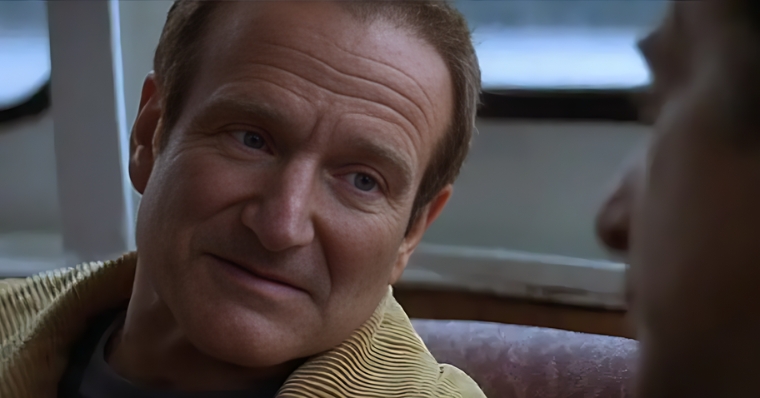
Robin Williams
Robin Williams has long been celebrated for his magnetic, positively spirited performances that have made a lasting impression on audiences around the globe. Famous for roles that have you either in stitches or sentimental tears, he's the epitome of a comedy and drama virtuoso. But let's not forget that this multifaceted actor also ventured into darker terrain by playing a cold-blooded villain in the 2002 film "Insomnia." Interestingly, "Insomnia" remains a less-talked-about gem in director Christopher Nolan's extensive filmography. The film serves as a narrative cocktail that mixes homicide detectives from Los Angeles and the frigid locales of Alaska, where they've been dispatched to unravel the murder of a 17-year-old girl. As if that weren't compelling enough, this suspenseful flick is actually a reimagining of a Norwegian film, and it met with critical acclaim in addition to scoring well at the box office. In "Insomnia," Williams portrays Walter Finch, an ostensibly charming author who initially projects a demeanor of utmost likability. Don't let that friendly face deceive you, though. Lurking beneath that congenial exterior is a remorseless killer. When the proverbial mask slips, Finch chillingly admits to murdering the young girl, justifying his horrific act by saying she had mocked his sexual advances. The gravitas Williams brought to this role is something that's often overlooked when discussing his career . He showed how his acting chops weren't just confined to comedy and uplifting drama; he could effortlessly plunge into the dark complexities of a villainous role and come out the other side with a performance that was nothing short of electrifying.
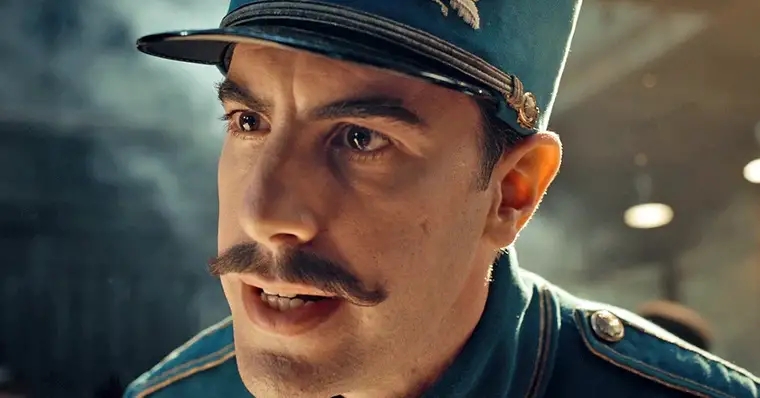
Sacha Baron Cohen
When it comes to an uncanny ability for improvisation and a knack for comedic mastery, Sacha Baron Cohen is one of those names that immediately pops into mind. Famous for playing the hilariously absurd characters of Borat, Ali G, and Brüno Gehard, Cohen has managed to tickle funny bones around the world. But here's a lesser-known fact: he's also made waves in roles that aren't just for laughs; we're talking dramatic, villainous parts that showcase the breadth of his talent. Take, for instance, his role in "Hugo." In this visually resplendent film, Cohen plays Inspector Gustave Dasté, the guy—oops, character—hell-bent on catching orphans and stray dogs at the Paris train station where the story unfolds. Then there's his performance as Monsieur Thénardier in the 2012 adaptation of "Les Misérables," a character as deplorable as they come. Monsieur Thénardier is more than just an average antagonist; he's the cunning innkeeper who swindles his guests and puts Anne Hathaway's Fantine on the grim path toward prostitution. What makes Cohen's portrayal all the more compelling is that he adds layers to Thénardier by mixing in moments of dark humor. Even though the character doesn't occupy a significant amount of screen time, when he does show up, he's utterly revolting. It's a testament to Cohen's versatility that he's able to make us cringe and think while maintaining his unique blend of flair. It's fascinating. Cohen has made us laugh until we cried with his comedic roles, but he's also shown us that he can wield a darker palette when needed. This dramatic range is what sets him apart from many of his contemporaries. It's like seeing your favorite stand-up comedian suddenly channel their inner Shakespearean villain. It not only surprises you, but it also keeps you hooked, waiting eagerly for what he'll tackle next.
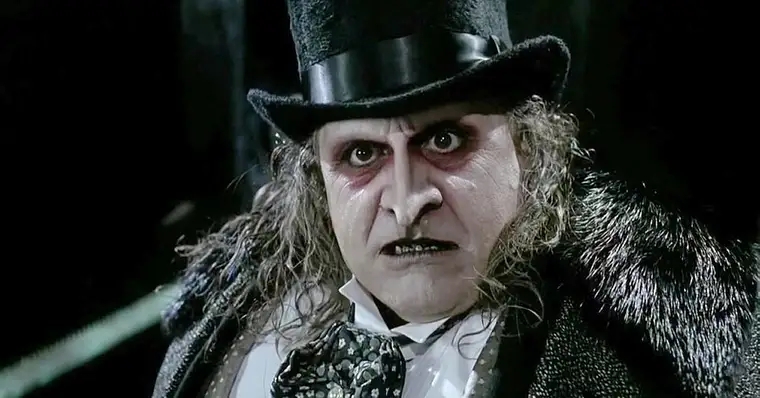
Danny DeVito
We all know Danny DeVito for his comedic genius in flicks like "Twins" and his endearing yet manipulative portrayal as the grouchy dad in "Matilda." Yet, if you think that's the extent of his range, think again. Let's talk about that time he showed his darker, more menacing side and took a plunge into the villainous realm. For the superhero enthusiasts among us, it's hard to forget his iconic turn as the Penguin in "Batman Returns," directed by the legendary Tim Burton. Released in 1992, "Batman Returns" bears the unmistakable signature of Burton: stylized, surreal, and visually arresting. But it's DeVito's commitment to his role that really left an indelible mark on the genre of comic book villains. If you're into comics, you'll recognize that his rendition of The Penguin brings out all the emotional and psychological nuances that make the character so captivating in the first place. He didn't just slap on some makeup and call it a day. No, DeVito immersed himself in the essence of the Penguin, embodying the character's own turmoil and desperate thirst for power. The result? A multi-dimensional, utterly reprehensible figure that you can't help but watch with a mixture of fascination and repulsion. But let's dig a bit deeper. The Penguin is a complex character who's had a tough life, and DeVito leverages this to add layers to his portrayal. The actor delves into the emotional reservoirs of the Penguin's life, making you almost empathize with him for a moment—only to recoil as he reverts to his sinister, power-hungry self. This oscillation between vulnerability and villainy makes DeVito's Penguin an unforgettable character, and it's what sets him apart from many comic book antagonists who are just pure evil. So, in a career filled with chuckles and comedic quirks, Danny DeVito's foray into the world of superhero bad guys stands as a remarkable pivot. It highlights the dynamism and the broad spectrum of his acting skills.
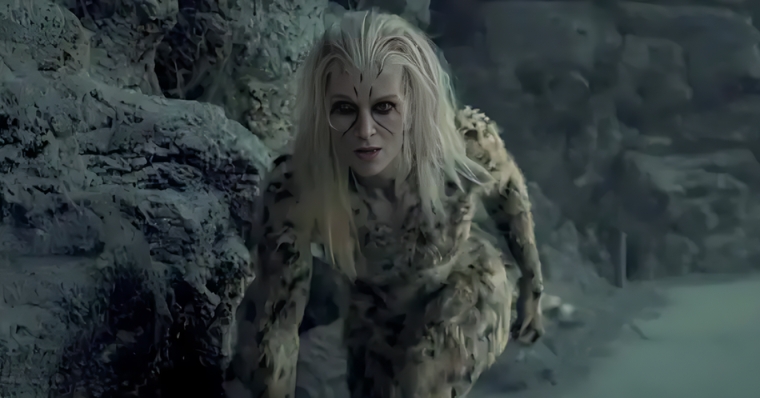
Kristen Wiig
Kristen Wiig has had us all in stitches for years. Her time on "Saturday Night Live" and her standout roles in comedy films like "Bridesmaids" have solidified her as something of a comedy royalty. But if you've been paying attention, you'd know she's not just about making people laugh. That's evident from her unexpected but captivating turn as Barbara Minerva, the complex antagonist in "Wonder Woman 1984." The film introduces Barbara as a somewhat downtrodden woman, overshadowed by her dazzling colleague, Diana, brought to life by Gal Gadot. Tired of being the wallflower, Barbara takes a dark route to power and undergoes a transformation that turns her into the fearsome Cheetah. She's not just any villain, but one from the DC Comics universe, offering us a fresh dimension of Wiig's acting chops. While the movie itself had a lukewarm reception, Wiig's performance stands out like a gleaming gem. She garnered praise from various quarters for her ability to portray Barbara Minerva's vulnerability and menacing nature. It's not everyone who can make you feel for a villain. Wiig's nuanced take on the role serves as the film's emotional center, offering audiences a villain that is not just a caricature but a complex human being. She's not just evil incarnate; she's someone who has undergone a tragic transformation in a bid for empowerment, and Wiig skillfully portrays this double-edged reality. The leap from a downtrodden Barbara to a fearsome Cheetah isn't just a physical one. Wiig executes this evolution with an emotional depth that makes you second-guess your own notions about villains. You catch glimpses of the insecure Barbara even as she snarls and roars as Cheetah. It's this emotional complexity that makes Wiig's portrayal so riveting. The fascinating thing here is that the performance feels entirely consistent with Wiig's previous work. She's always had a knack for conveying a depth of emotion underneath her comedic roles, and here she gets a chance to swing that pendulum in the other direction, using her considerable talent to explore darker, more uncomfortable corners of the human experience.

Steve Martin
Steve Martin, a name synonymous with uproarious laughter and comedy gold, became a cultural phenomenon in the '70s. He had fans filling stadiums to the brim, eagerly awaiting his stand-up routines, which were nothing short of comedic mastery. And let's not overlook his roles in iconic movies like "Roxanne," "Three Amigos," "Bowfinger," "L.A. Story," and "The Jerk." Fast forward in time, and you'll find him on the small screen in "Only Murders in the Building," which, true to form, dabbles in the comedic arena. But if you think this comedian has merely stayed in his well-worn lane of hilarity, you're in for an intriguing twist. Exhibit A: "The Spanish Prisoner" from 1997, where Steve took a detour into the darker shades of storytelling. Penned explicitly for Martin by David Mamet, an illustrious writer and director, the role of Jimmy Dell allowed him to dive into the complexities of playing a villain. And guess what? He nailed it. The story is a roller coaster in its own right, featuring Joe Ross, an engineer who invents a profitable process that's yet to be patented. As you'd expect, this innovation catches the eyes of some not-so-upright characters, spiraling into a tangled web of deceit and double-crossing. Trust becomes an elusive commodity, and discerning who's scamming who turns into a game of psychological chess. Here's where Martin turns up the heat. As Jimmy Dell, he's not your run-of-the-mill bad guy; he's a swindler so enchanting he deceives not just the characters in the movie but the audience as well. It's a performance so nuanced that you might find yourself questioning your moral compass. Did Steve Martin, the king of comedy, just make me sympathize with a deceiver? Even the critics couldn't help but heap praise on Martin's knack for morphing into this deceptive character. His Jimmy Dell didn't just raise eyebrows; it sent ripples through the industry, proving that, indeed, comedians can carry weighty roles with finesse. Why does this matter? Well, it's a vivid testament to Steve Martin's uncanny versatility. He's not just the funnyman strumming a banjo or making balloon animals; he's an artist willing to step beyond the spotlight of comedy into the murkier, more complex realms of human behavior. From his stand-up days to his screen performances, he kept surprising, leading us down avenues we didn't even know existed, all the while keeping us riveted. To put it bluntly, Steve Martin's career is a rich tapestry of comedic gems and surprising turns, each strand woven with expert craftsmanship. He's the man who made you laugh until your sides ached, then turned around and left you pondering some of life's darker intricacies.
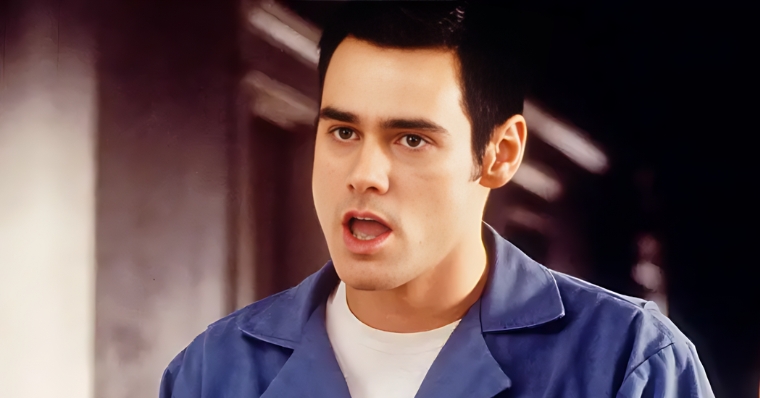
Jim Carrey
Jim Carrey is renowned for his unique brand of comedy, one that leans heavily on exaggerated, face-stretching performances. While it's true that some of his earlier comedic ventures may have lost a bit of their luster over the years, there's no denying that Carrey has left an indelible mark on the genre with hits like "The Mask." Yet, for all his comedy fame, Carrey has also taken a walk on the dark side—venturing into villainous roles that allow his larger-than-life acting style to shine in a different light. Take, for instance, his portrayal of the Riddler in Joel Schumacher's "Batman Forever." Not only did he bring his trademark flamboyance to the role, but he also infused the character with a sense of malevolence, insanity, and an undercurrent of repressed rage, making it a memorable portrayal in its own right. But if you think his villainous turns end there, think again. In "The Cable Guy," a film billed as a dark comedy-thriller, Carrey takes on the role of Chip Douglas, a cable installer turned deranged stalker. While it may seem like a comedy on the surface, his performance is genuinely unsettling. Carrey deftly navigates the fine line between quirky and scary, imbuing everyday activities with an air of menace that keeps you glued to your seat. Even when he's doing something as mundane as installing a cable box, you can't help but feel that something sinister lurks beneath his cheery exterior. This ability to oscillate between comedy and fear showcases the full range of Carrey's acting chops.
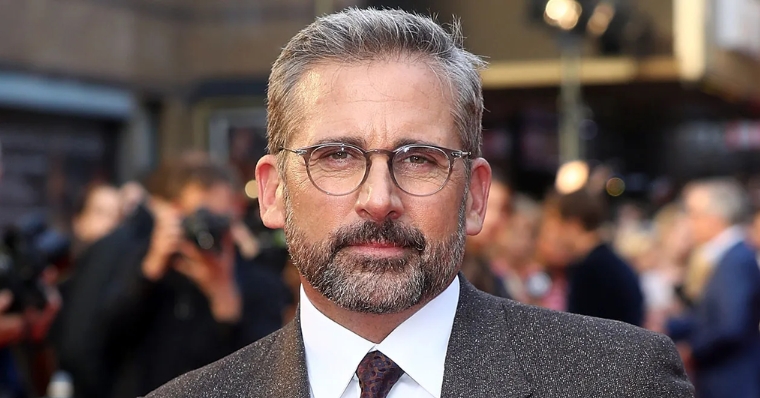
Steve Carell
You might know Steve Carell as the bumbling, sometimes cringe-worthy but lovable boss Michael Scott from "The Office," or maybe as the hilariously naive title character in "The 40-Year-Old Virgin." Trust me, those characters have a special place in the pop culture lexicon. But have you ever caught him flipping the script and tapping into a more sinister side? Behold, "Foxcatcher." Now, this isn't your typical Carell flick. It's as far from a comedy as Mars is from Earth. Here, he plays John du Pont, a millionaire wrestling fan who later became notorious for murdering Olympic wrestling champ Mark Schultz, portrayed by none other than Channing Tatum. This role yanks Carell out of the comfort zone of comedic timing and slapstick humor, plunging him deep into dramatic territory. But what truly sets Carell's portrayal of du Pont apart is the nuance, the complexity he brings to the table. This isn't a surface-level villain; it's a man shrouded in layers of troubling behavior concealed behind a wealthy facade. Carell isn't just dabbling in drama; he's delving into the psychology of a deeply disturbed individual. At times, his performance is unsettling to the point of sending chills down your spine. Perhaps what's most striking is that this story is ripped straight from the headlines—actual events, real people. Before the shocking crime even unfolds on screen, Carell's performance oozes with an eerie foreboding, sketching out the inner turmoil that drives du Pont toward his horrific act. The man has you hooked from the get-go, peeling back layer after layer to reveal a dark, gnarled core. And the critics noticed. Carell snagged an Oscar nomination for his transformative role, and that's no small feat. It's almost as if the Academy was saying, "Look, comedy is cool and all, but have you tried flexing those dramatic muscles?" An Oscar nod is the cherry on top, the tip of the iceberg for an actor who has consistently shifted the bounds of what he can achieve. Here's the bottom line: Steve Carell is not confined to the cubicle of Dunder Mifflin or the awkward adventures of a 40-year-old virgin. This man has the range to keep you laughing one minute and pondering the dark complexities of the human condition the next. And that, let's be honest, takes a dash of genius.
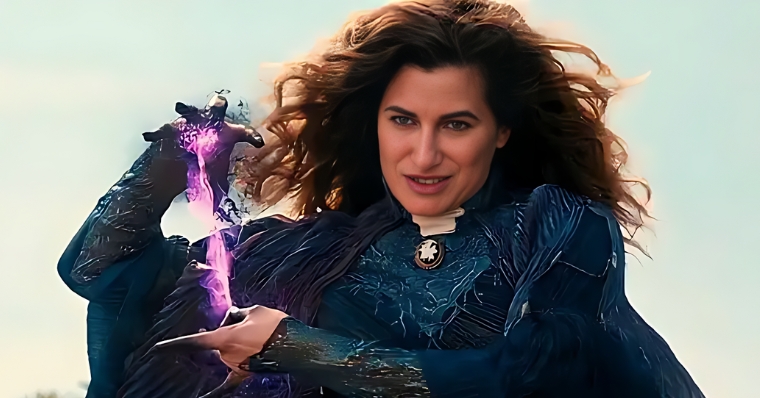
Kathryn Hahn
Before she ever whispered incantations or manipulated Wanda in the MCU's hit series "WandaVision," Kathryn Hahn had already carved out a niche for herself in the comedy world. The laughter came easily, whether she was on screen, on stage, or anywhere else that required a punchline. But don't mistake her for just another funny face. Hahn's portrayal of Agatha Harkness—a mix of wit, cunning, and deception—became one of the standout performances in "WandaVision." Sure, it's a role that's got some chuckles, but it also has a dark edge. You're not just watching the standard villainy; it's as if you're peeling an onion, revealing complex layers that make you wonder what's really going on. It's that depth and nuance that earned her not just fan acclaim but her very own
Marvel series, catapulting Agatha Harkness from a side character to a leading lady. Let's not forget Hahn's impressive résumé leading up to this Marvel milestone. Have you checked out her comedic chops in movies like "We're the Millers" or "Anchorman: The Legend of Ron Burgundy"? And who could overlook her roles in TV shows like "Free Agents" and the mouth-watering drama "Afternoon Delight"? Every role is a testament to her range, her ability to move effortlessly from hilarity to gravity. Recently, the actress expanded her repertoire with a role in "Glass Onion: A Knives Out Mystery." Yes, Kathryn Hahn is adding more than just laughs to her legacy; she's constantly pushing boundaries, reinventing herself without losing that special something that makes you stop and think, "Hey, she's incredible at what she does." In a nutshell, Kathryn Hahn isn't simply riding the wave of a genre or two. She's a multifaceted talent capable of turning any role—comedic or sinister—into a must-watch event—a dash of comedy, a sprinkle of villainy, and an ever-evolving range of characters.
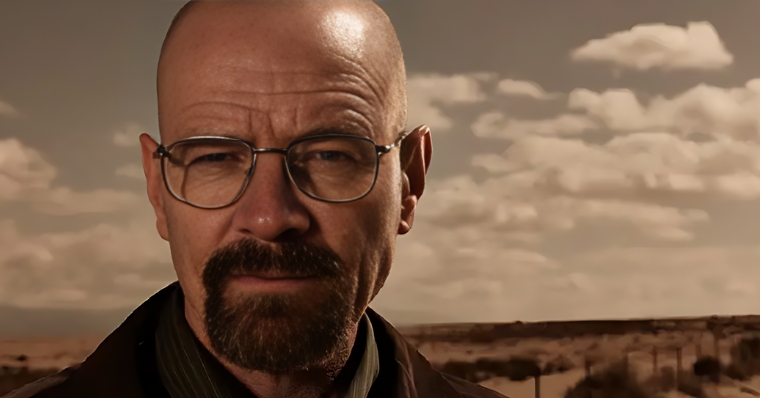
Bryan Cranston
Bryan Cranston is synonymous with Walter White these days, and why wouldn't he be? That masterfully complex character from "Breaking Bad" has imprinted itself in the pop culture psyche. But, for those who've done their homework on Cranston's career, it's clear this guy is not a one-trick pony. Take a stroll down memory lane, and you'll find him in "Malcolm in the Middle," playing Hal, the lovable, scatterbrained father to the show's protagonist. He's the kind of dad you'd want at your school talent show—completely embarrassing but endearing. While Hal was always good for a laugh, Cranston turned it up a notch or two, giving the character a heart and soul that made him memorable in his own right. Flash forward a bit, and he's flexing his versatile acting muscles in quirky films like "Little Miss Sunshine" and musical extravaganzas such as "Rock of Ages: The Movie." These aren't just footnotes in his career; they're performances that showcase how he can easily transition between genres and tone, from laugh-out-loud comedy to emotionally charged drama. Cranston would give you a solid chance at winning if you're looking to fill a bingo card of all the roles an actor can excel at. However, there's no escaping the shadow of Walter White. This character isn't just your run-of-the-mill protagonist. In the sprawling narrative of "Breaking Bad," Walter starts off as a seemingly meek high school chemistry teacher. As the series evolves, so does he—but not necessarily for the better. Before you know it, Walter becomes morally ambiguous, self-centered, and rather menacing. He turns into a high-stakes criminal with a Ph.D. in manipulation. His transformation is the essence of a compelling, jaw-dropping character arc, and it's a tribute to Cranston's incredible skill to make it all so believable. So, if you think you've pegged Bryan Cranston, think again. The man has range, and whether he's making you chuckle or sending chills down your spine, he knows how to command the screen. One minute, you're rooting for him as the fun dad in a family comedy; the next, you're transfixed by his transformation into a criminal mastermind.











